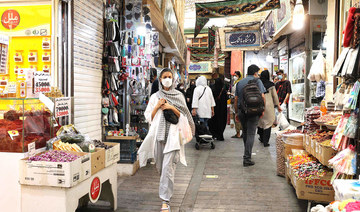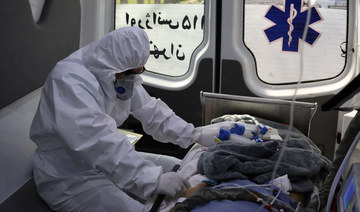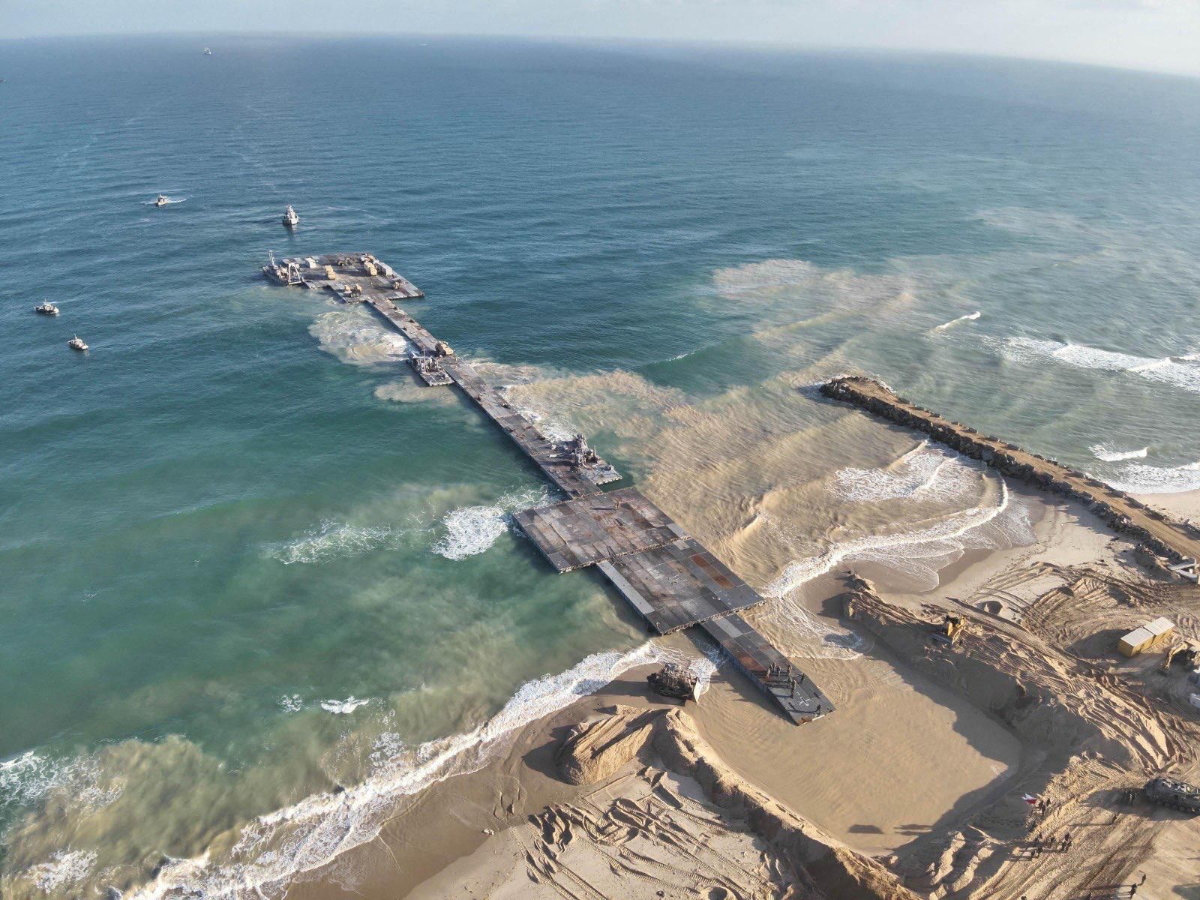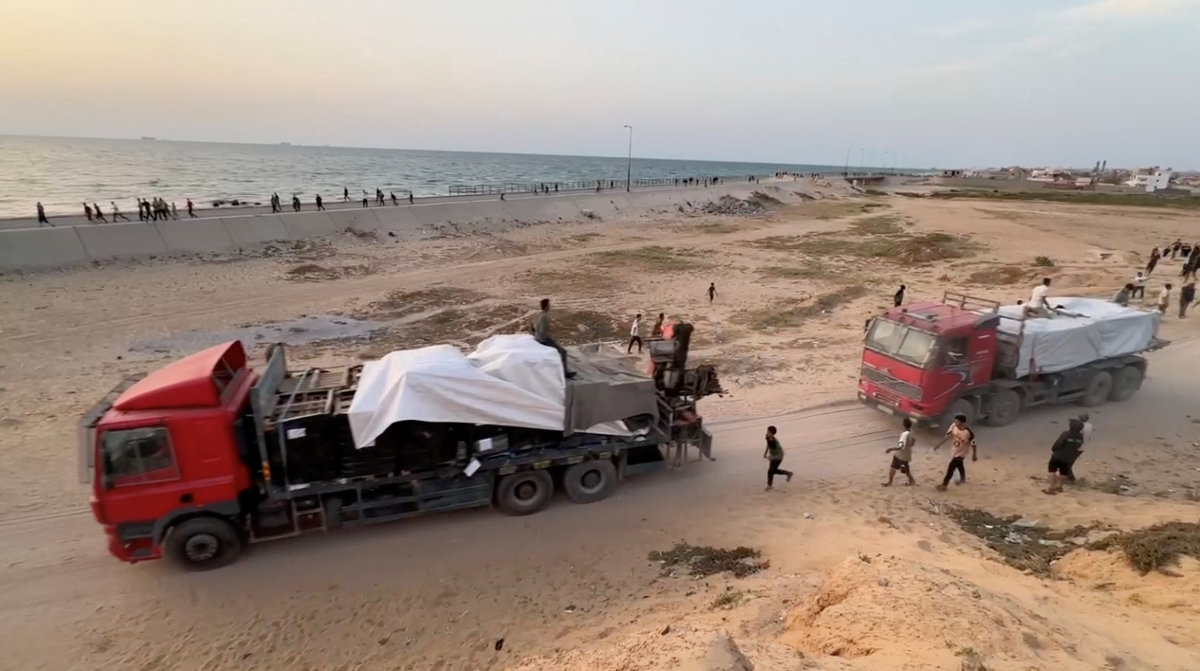CAIRO: Israeli forces battled Hamas fighters in the narrow alleyways of Jabalia in northern Gaza on Friday in some of the fiercest engagements since they returned to the area a week ago, while in the south militants attacked tanks massing around Rafah.
Residents said Israeli armor had thrust as far as the market at the heart of Jabalia, the largest of Gaza’s eight historic refugee camps, and that bulldozers were demolishing homes and shops in the path of the advance.
“Tanks and planes are wiping out residential districts and markets, shops, restaurants, everything. It is all happening before the one-eyed world,” Ayman Rajab, a resident of western Jabalia, said via a chat app.
Israel had said its forces cleared Jabalia months earlier in the Gaza war, triggered by the deadly Hamas-led attacks on southern Israel on Oct. 7, but said last week it was returning to prevent Islamist militants re-grouping there.
In southern Gaza bordering Egypt, thick smoke rose over Rafah, where an escalating Israeli assault has sent hundreds of thousands of people fleeing from what was one of the few remaining places of refuge.
“People are terrified and they’re trying to get away,” Jens Laerke, UN humanitarian office spokesperson, said in Geneva, adding that most were following orders to move north toward the coast but that there were no safe routes or destinations.
As the fighting raged, the US military said trucks started moving aid ashore from a temporary pier, the first to reach the besieged enclave by sea in weeks.
The World Food Programme, which expects food, water, shelter and medical supplies to arrive through the floating dock, said the aid was transported to its warehouses in Deir Al Balah in central Gaza and told partners it was ready for distribution.
The United Nations earlier reiterated that truck convoys by land — disrupted this month by the assault on Rafah — were still the most efficient way of getting aid in.
“To stave off the horrors of famine, we must use the fastest and most obvious route to reach the people of Gaza – and for that, we need access by land now,” deputy UN spokesperson Farhan Haq said.
US aid was arriving in Cyprus for delivery to Gaza via the new pier, Washington said.
Hamas demanded an end to Israel’s siege and accused Washington of complicity with an Israeli policy of “starvation and blockade.”
The White House said US national security adviser Jake Sullivan would visit Israel on Sunday and stress the need for a targeted offensive against Hamas militants rather than a full-scale assault on Rafah.
A group of US medical workers left the Gaza Strip after getting stuck at the hospital where they were providing care, the White House said.
Humanitarian fears
The Israel Defense Forces said troops killed more than 60 militants in Jabalia in recent days and located a weapons warehouse in a “divisional-level offensive.”
A divisional operation would typically involve several brigades of thousands of troops each, making it one of the biggest of the war.
“The 7th Brigade’s fire control center directed dozens of airstrikes, eliminated terrorists and destroyed terrorist infrastructure,” the IDF said.
At least 35,303 Palestinians have now been killed, according to figures from the enclave’s health ministry, while aid agencies have warned repeatedly of widespread hunger and dire shortages of fuel and medical supplies.
Israel says it must capture Rafah to destroy Hamas and ensure the country’s safety. In the Hamas attack on Oct. 7, 1,200 people died in Israel and 253 were taken hostage, according to Israeli tallies. About 128 hostages are still being held in Gaza.
Israel said on Friday that its forces retrieved the bodies of three people killed at the Nova music festival in Israel on Oct. 7 and taken into Gaza.
In response, Hamas said negotiations were the only way for Israel to retrieve hostages alive: “The enemy will not get its prisoners except as lifeless corpses or through an honorable exchange deal for our people and our resistance.”
Talks on a ceasefire have been at an impasse.
‘Tragic war’
Israeli tanks and warplanes bombarded parts of Rafah on Friday, while the armed wings of Hamas and Islamic Jihad said they fired anti-tank missiles and mortars at forces massing to the east, southeast and inside the Rafah border crossing with Egypt.
UNRWA, the main UN aid agency for Palestinians, said more than 630,000 people had fled Rafah since the offensive began on May 6.
“They’re moving to areas where there is no water — we’ve got to truck it in — and people aren’t getting enough food,” Sam Rose, director of planning at UNRWA, told Reuters on Friday by telephone from Rafah, where he said it was eerily quiet.
At the International Court of Justice, or World Court, in The Hague, where South Africa has accused Israel of violating the Genocide Convention, Israeli Justice Ministry official Gilad Noam defended the operation.
The South African legal team, which set out its case for fresh emergency measures the previous day, framed the Israeli military operation as part of a genocidal plan aimed at bringing about the destruction of the Palestinian people.


























